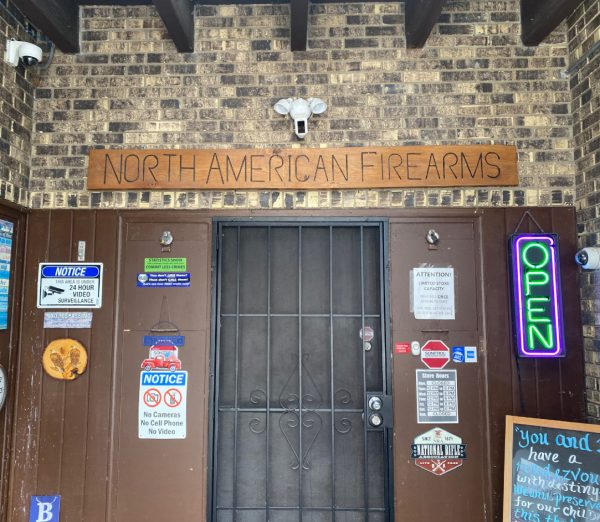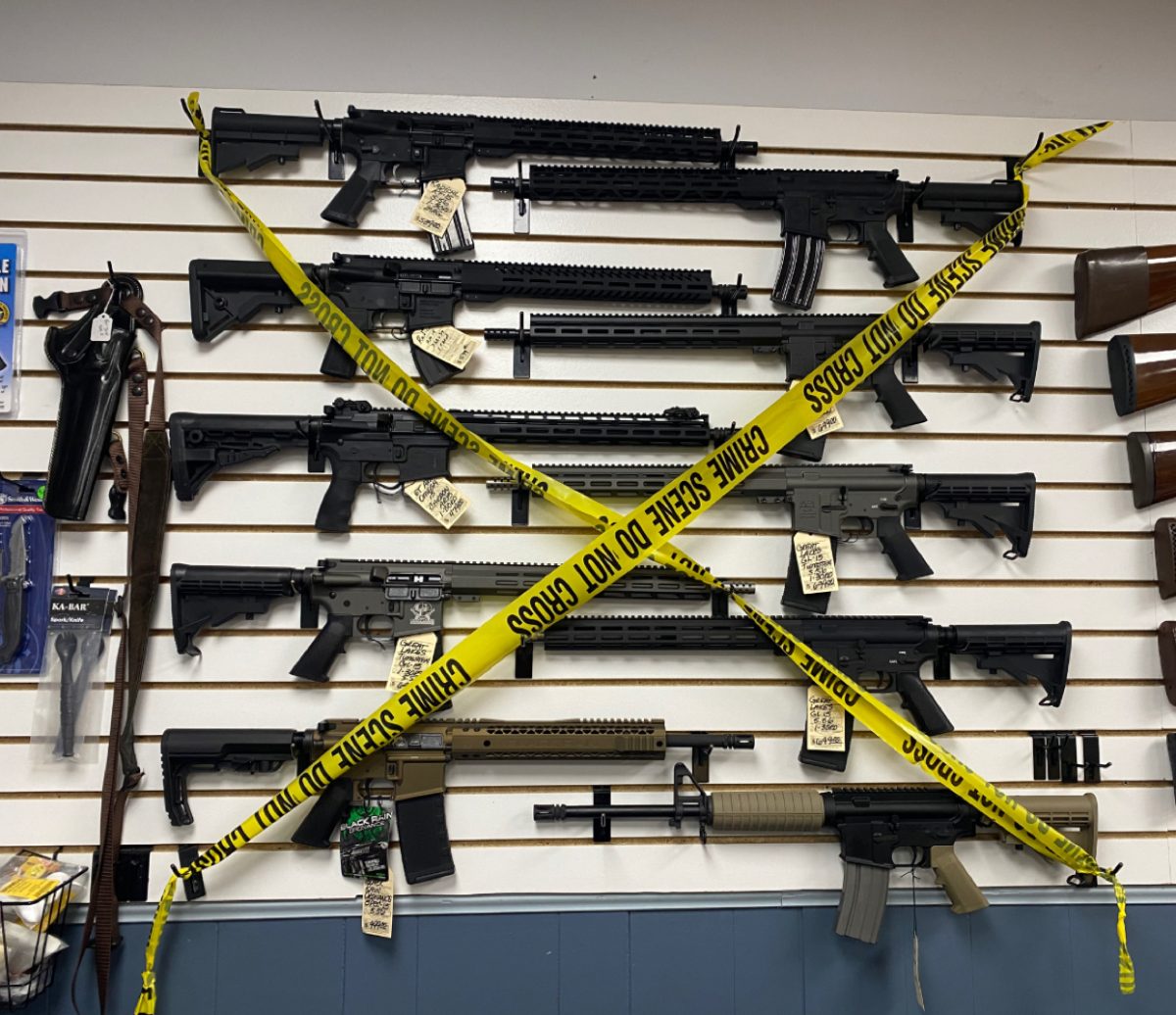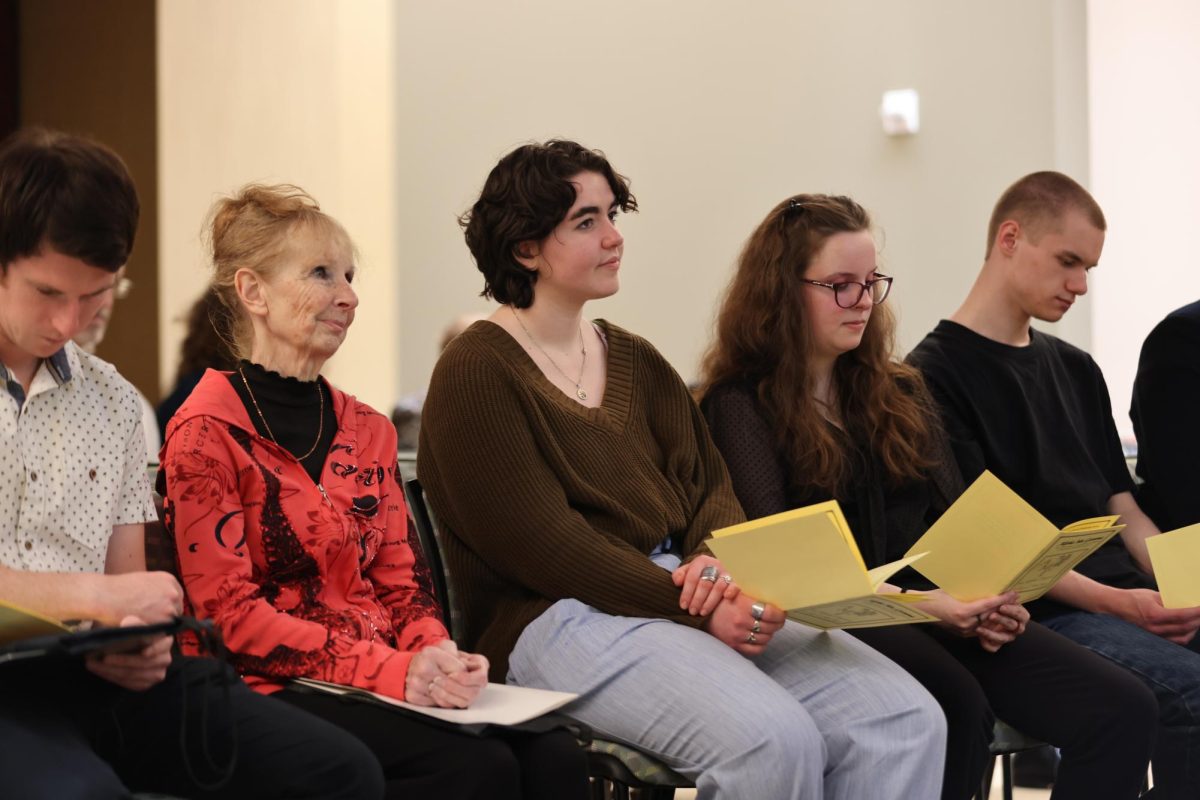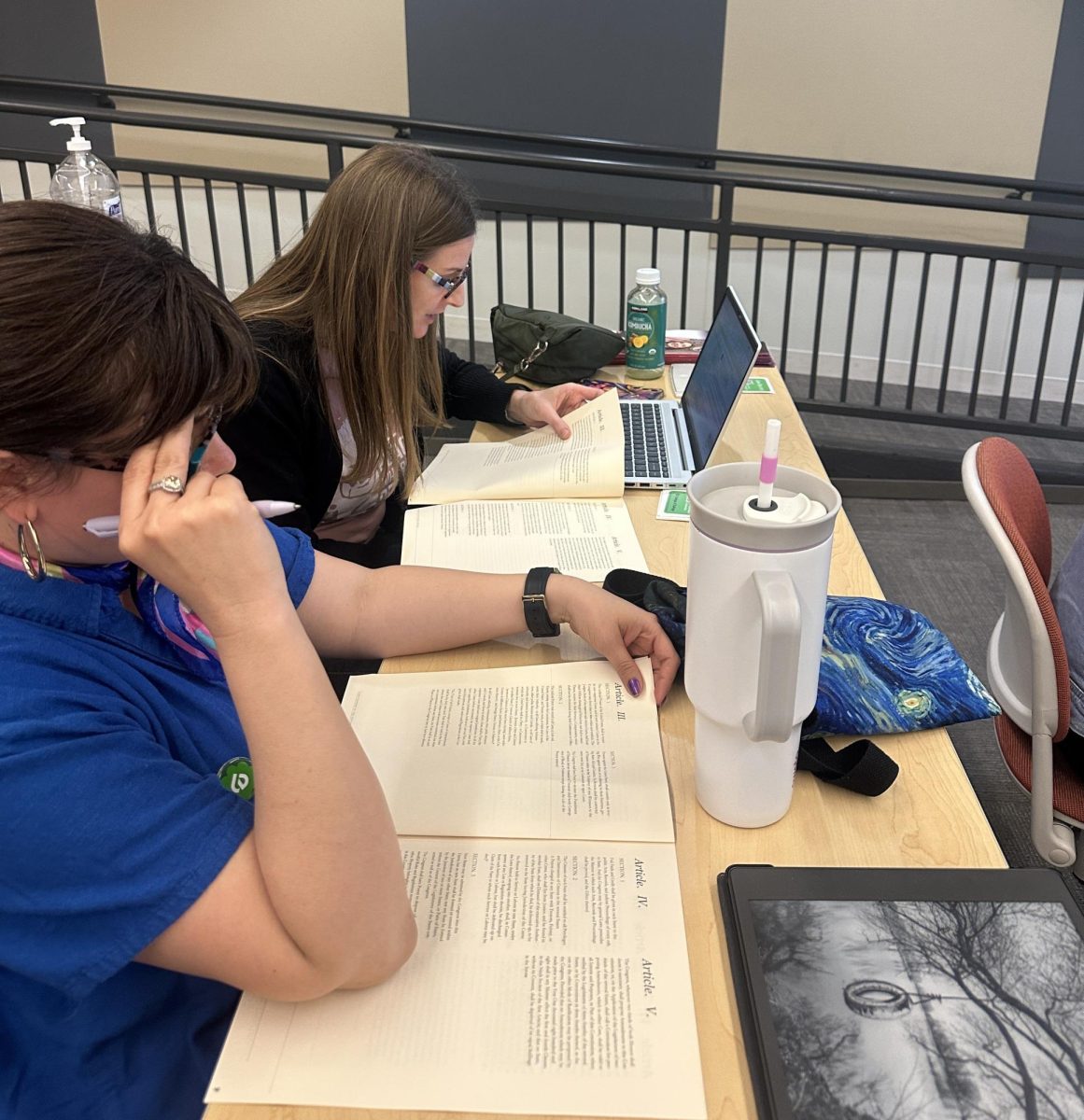Jeff Kenny took ownership of North American Firearms in December 2019, a family-owned gun store based out of Lombard, Ill. Kenny oversees the shop’s operation, including sales and answering any questions related to purchases or the firearm industry at large. Because of Illinois’ newest gun legislation, his shop has been put in times of uncertainty.
“The ban itself has knocked out a large percentage of our business, and especially being a small store like we are, it’s been hard to keep scraping by,” Kenny said. “They left enough guns that are legal for us to still be open, but business, it’s drastically taken a huge hit.”
The Protect Illinois Communities Act “makes it unlawful to manufacture, deliver, sell, or purchase an assault weapon, assault weapon attachment, .50 caliber rifle, or .50 caliber cartridge,” according to the bill’s writing. This act was deemed constitutional by the Illinois Supreme Court August 11, after lawsuits tried to argue against the legislation’s passing.
A key argument for those who fought the ban said the legislation violated the equal protection clause of the 14th Amendment, given that members of law enforcement, the military, correctional officers and trained, private security can be given exemptions.
Current owners of these firearms must register them with the Illinois State Police (ISP) by Jan. 1, 2024. One of Kenny’s biggest objections is that the contents of the bill, in his opinion, rely upon arbitrary grounds.
“Their assault weapon definitions are very broad, to the point where it banned regular, everyday common guns,” Kenny said. “A lot of it is just that the state doesn’t want us to own guns in the first place because most of the legislature are very anti-gun. It’s more of a control measure.”
This Act was passed in the wake of the Highland Park mass shooting in July 2022, which took the lives of seven people while more than 30 others were injured by shrapnel or bullets.
“The people who are passing a lot of the gun laws don’t really know anything about guns,” Kenny continued. “If you actually listen to them speak you can tell that they have no idea what they’re talking about. They’re doing it based on emotion instead of fact.”

In recent years, because of the public’s concern over crises like the COVID-19 pandemic, many who applied for Firearm Owners Identification (FOID) Cards have been forced to wait for months because of the overwhelming number of applications coming through the ISP’s system. In November 2020, the ISP reported a 167 percent increase for FOID Card applications since 2017.
“All the unrest in the country. All the rioting and looting. People were freaking out,” Kenny said. “People that never owned guns before at that point decided that they might need one for protection.”
After the death of George Floyd in May 2020, Kenny recalls long lines of customers for many days standing outside his shop ready to purchase a firearm. At that time, Kenny said North American Firearms was deemed essential by the state government, because his shop could help keep law enforcement stocked with equipment.
“A lot of them lived in the city of Chicago, and there were shootings going on,” Kenny said. “Not just even in the city, but in a lot of the suburbs too. People just wanted to protect themselves, and just have something in their home just in case anything was to happen.”
When it comes to the enforcement of the assault weapons ban, Kenny sees the leadership inside the state who oversees the upholding of criminal law as largely problematic.
“It’s all about enforcing the laws that are already on the books that we have to protect against this stuff,” Kenny said. “When you get prosecutors and district attorneys just letting the people right back out on the street with a slap on the wrist, what’s the point of the laws?”
Supporters of the Protect Illinois Communities Act have found the legislation groundbreaking. One of its aims is to lower access to weapons commonly used in mass shootings so an individual who plans to commit violence against others can be stopped.
The legislation was authored and approved primarily by Democrats. Inside the Illinois Supreme Court, the bill passed 4-3, with one Democrat and the only two Republican justices dissenting.
Julia Beckman oversees the functioning of 103 precincts as chair for the Downers Grove Township Democrats, and has been officially involved with the township since 1978. The township covers Downers Grove, Clarendon Hills, Hinsdale, Darien, Burr Ridge, Willowbrook and Westmont.
“I think it was overdue, and I was very happy that our state Supreme Court affirmed it,” Beckman said. “It may not be the whole answer because people will always try to go around laws, but this gives law enforcement some real teeth.”
When it comes to community safety and the public’s well-being, Beckman thinks about the mental health aspect of those who commit mass shootings. In a July 2022 study by Columbia University, research found 42% of all mass shooters have experience with some kind of early childhood trauma. When left unaddressed, it can go on to feed a person’s rage later in life.
“The people I feel who do the mass shootings – they’re angry. They’re unbalanced,” Beckman said. “They shouldn’t probably have any kind of a gun, truth be told. I think this [act] will make it so much harder for those kinds of people to take those angry steps.
“Along with all this there needs to be better mental health care, and I think the state is working hard on this,” Beckman continued. “Deal with the anger and the mental health issues before it gets to that point. Parents have to be more responsible and more aware of what’s happening with their kids.”
When recognizing the concerns of those who believe this act is violating their Second Amendment rights, Beckman wants those to consider the circumstances of the United States’ founding.
“The Founding Fathers had no concept of automatic weapons.” Beckman said. “You just don’t need that kind of a weapon to protect yourself. They’re military-grade weapons. They’re weapons to destroy a lot of people in a few minutes, and that has nothing to do with Second Amendment rights.”
When it comes to the broader conversation about gun control nationwide, Beckman believes the act has potential to persuade other states into legislating bans. But for a gun shop owner like Kenny, the dialogue happening at the state level when laws like this get passed isn’t recognizing one key factor.
“The more you ban something; the more you tell people that they can’t do something, the more they’re going to want to do it,” Kenny said. “It’s just human nature.”
Illinois has become the ninth state to pass an assault weapons ban, preceding Washington state’s ban in April 2023.







